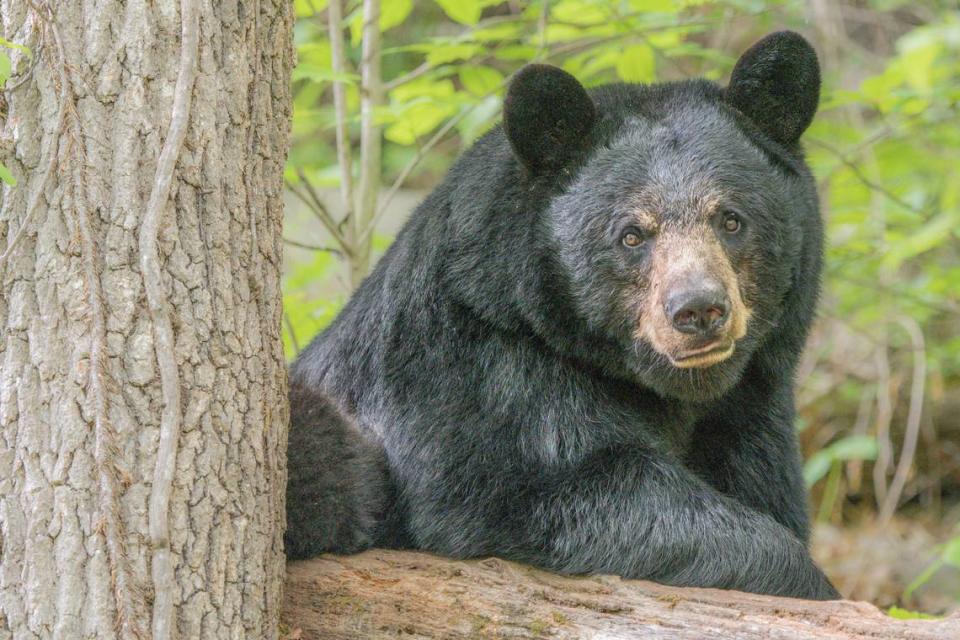Bear sightings are common during spring in NC. Here’s what to do if you see one
Spring is here, which means you’re more likely to spot a black bear in North Carolina, according to the N.C. Wildlife Resources Commission.
“Black bears emerge from their dens in spring and become more active,” the NCWRC said in a news release Monday. “Humans may come across cubs that are alone — most likely waiting for their mothers to return from foraging.”
Black bears are the only species of bear in North Carolina, and are found in around 60% of the state’s total land area, according to the NCWRC.
Most bears that wander to the central part of the state are male, around two years old, and weigh less than 100 pounds, the NCWRC says — but they can still be dangerous under the right conditions.
The NC Wildlife website says that, “black bears, by nature, are not aggressive animals. They peacefully coexist in close proximity to humans year-round throughout North Carolina. The presence of bears in these new areas should not be immediately viewed as cause for alarm or fear.”
Why are bears in your area?
According to wildlife experts, most North Carolina black bears live in the eastern part of the state, in the NC mountain areas, or up nearer the Virginia border. When we see them in other areas, they are typically just passing through.
After a young bear was stranded in a tree at UNC Rex Hospital in Raleigh in 2021, Greg Batts, the District 3 wildlife biologist for the North Carolina Wildlife Resources Commission, told The News & Observer that juvenile bears wandering around in the spring and summer “have been recently kicked out by their mothers and are looking for a place to live.”
Roland Kays, a scientist at the NC Museum of Natural Sciences in Raleigh, told The News & Observer in a previous report that “every year there are some teenagers who go looking for territory and they wander the wrong way, and if there are no girl bears there, they just keep going.”
Here’s what to do and who to contact if you see a bear in North Carolina.

What should you do if you see a bear?
While bears are generally even-tempered, there are some instances that could cause them to become aggressive.
“You have to recognize they are large, powerful animals and there are certain situations that could be problematic,” NCWRC Wildlife Biologist Rupert Medford told The Charlotte Observer in 2022.
“For example, you wouldn’t want to trap one in your garage or surprise one coming around the corner that’s eating food, since they can exhibit defensive behaviors.”
The NCWRC offers the following safety tips if you encounter a bear:
Try to stay calm and observe it from a safe distance.
Make it aware of your presence by speaking in an assertive voice and waving your hands above your head to make yourself look bigger.
Back up slowly and walk away.
Keep your pets locked up.
Don’t approach, surround or corner it.
Don’t feed it.
Lock your garbage cans to prevent them from getting inside.
Who to contact if you see a bear
If you see a bear, you should make a note of its location and contact the N.C. Wildlife Helpline at 866-318-2401, or your district wildlife biologist.
If the bear is an abandoned cub, NCWRC will place it with a licensed bear cub rehabilitator.
NCWRC recommends visiting BearWise.org for more information on how to live responsibly with bears.
Coyote sightings may be more common this time of year in NC. How to keep them way from homes
Have you seen an armadillo in your Charlotte garden? North Carolina is tracking them
‘Rabid raccoons’ are roaming Charlotte. Here’s what to do — or not do — if you see one


